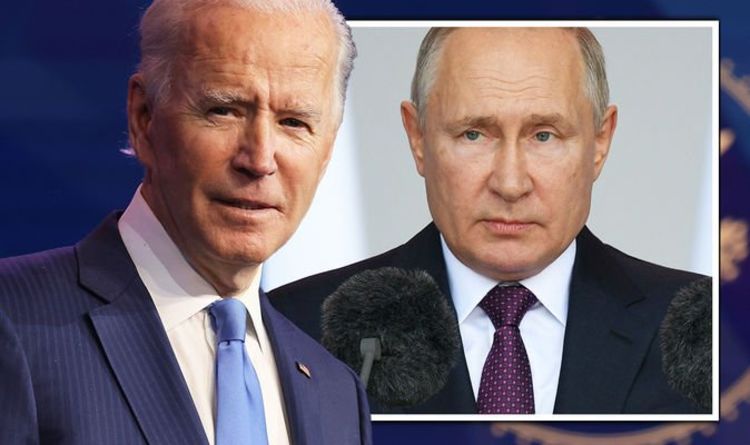Russia: Putin 'will face serious consequences' says Joe Biden
We use your sign-up to provide content in ways you’ve consented to and to improve our understanding of you. This may include adverts from us and 3rd parties based on our understanding. You can unsubscribe at any time. More info
The White House on Tuesday announced a formal tightening of relations between Doha and Washington – a step described by President Biden as “long overdue” and thought to be viewed by his administration as crucial to level out the diplomatic instability brought by the Russia-Ukraine conflict that the US and the wider West are inevitably involved in.
During a meeting with Qatari Emir Sheikh Tamim bin Hamad Al Thani at the White House on Monday, Mr Biden called Qatar a “good friend and reliable partner”.
He said from the Oval Office: “I’m notifying Congress that I will designate Qatar as a major non-NATO ally to reflect the importance of our relationship; I think it’s long overdue.”
Later, in a letter to Nancy Pelosi, the speaker of the US House of Representatives, he wrote: “I am making this designation in recognition of Qatar’s many years of contributions to US-led efforts in the US Central Command area of responsibility and in recognition of our own national interest in deepening bilateral defense and security cooperation with the State of Qatar.”

This would make Qatar the second country in the Gulf region after Kuwait to become a US major non-NATO ally, a status that would grant it special economic and military privileges in its connection with Washington.
According to the State Department, the “major Non-NATO Ally designation is a powerful symbol of the close relationship the United States shares with those countries and demonstrates our deep respect for the friendship for the countries to which it is extended”.
The news comes days after the White House said Mr Biden would discuss “ensuring the stability of global energy supplies” with Mr Sheikh Tamim, as Qatar is one of the largest producers of liquified natural gas (LNG).

Europe relies heavily on Russian energy supplies, and as an estimated 100,000 of the Kremlin’s troops, tanks, artillery and missiles remain placed near Ukraine’s frontiers, the stance of some in the EU, such as Germany, is under the influence of fears Moscow might cut their gas supplies.
In a joint statement on Friday, Biden and European Commission President Ursula von der Leyen claimed: “The United States and the EU are working jointly towards continued, sufficient, and timely supply of natural gas to the EU from diverse sources across the globe to avoid supply shocks, including those that could result from a further Russian invasion of Ukraine.”
Russian gas flows to Europe have been lower than usual for several months already in what is thought to be a part of Vladimir Putin’s strategy to secure the Gazprom-backed Nord Stream 2 pipeline project.
DON’T MISS
Key points to watch as Boris travels to Ukraine for crucial talks [INSIGHT]
How NATO forces are lining up as war imminent [LISTS & MAPS]
Vladimir Putin’s ex-wife humiliated him with cutting swipe [REVEAL]

The more than 1,200-kilometre gas pipeline runs from western Russia to northeastern Germany under the Baltic Sea and was completed in late 2021. It is now awaiting the green light from Brussels to become operational.
If it does, the pipeline — involving a consortium of Russian, German, Dutch and French energy companies — will be able to pump 55 billion cubic metres of gas to Germany each year.
Not giving it the green light, however, is one of the sanctions the West is threatening the Kremlin with in case it decides to invade Ukraine.
The Washington-Doha partnership has been presented as “central” to other US interests, too – including the evacuation of American citizens and allies during the withdrawal of US troops from Afghanistan last summer.
US Secretary of Defense Lloyd Austin said: “We couldn’t have evacuated more than 124,000 people from Afghanistan without your help at Camp As Sayliyah and Al Udeid.
“You welcomed with open arms those who left Afghanistan to find a new beginning.”
According to the Qatari emir, the episode showed how strongly the two countries can cooperate together, adding: “We’re going to continue working together to find ways to bring peace in our region.”
Source: Read Full Article





